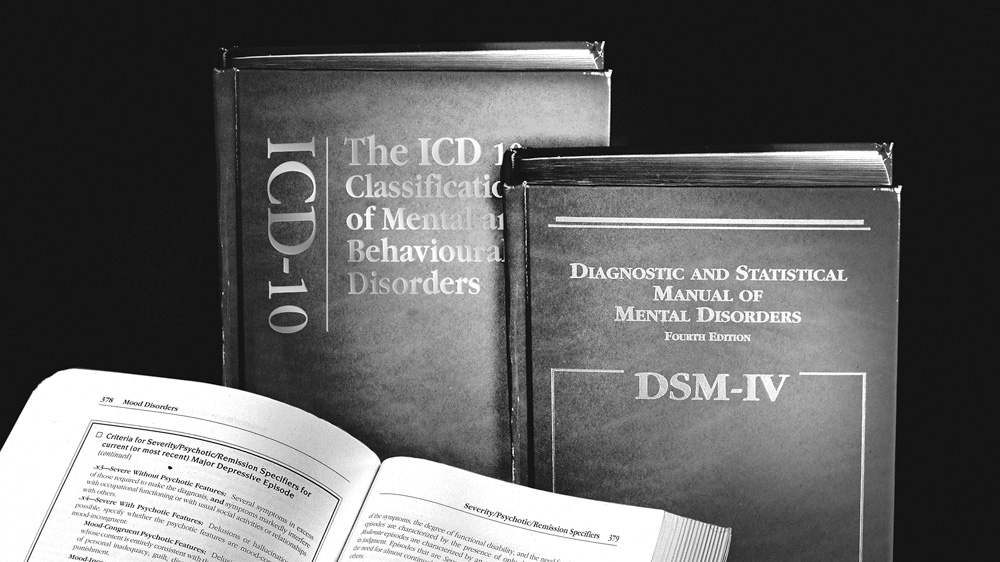Kate Allsopp and Peter Kinderman, from the University of Liverpool, recently published a commentary in The Lancet Psychiatry. In the article, the authors call for psychosocial adversities associated with mental health challenges to be listed alongside ICD-10 or DSM-5 diagnoses.
“Imagine if it were as serious to fail to document extreme poverty as it would be for a clinician to fail to identify severe depression,” suggest the authors.
 The commentary was written in response to a systematic review conducted by Wagner Silva Ribeiro and colleagues finding an association between income inequality and mental illness. Many studies have suggested that adversity and poverty negatively impact mental health and cognition.
The commentary was written in response to a systematic review conducted by Wagner Silva Ribeiro and colleagues finding an association between income inequality and mental illness. Many studies have suggested that adversity and poverty negatively impact mental health and cognition.
The authors write, “the United Nations Special Rapporteur characterizes mental health care not as a crisis of individual conditions, but as a crisis of social obstacles, which hinders individual rights.” The writers, therefore, conclude that “the circumstances that have given rise to distress should be formally recorded alongside the distress itself.”
Both the International Classification of Diseases (ICD) and Diagnostic and Statistical Manual of Mental Disorders (DSM) include descriptors about adversity (e.g., neglect, abandonment). However, these codes are seldom included in formal diagnoses. The authors suggest that the same codes used in a UK government program to reassess disability benefits (e.g., insufficient social support, inadequate housing, extreme poverty) be included in the diagnosis and routine data collection.
“Broadening routine data capture within UK National Health Service records could establish more inclusive, social, systemic, and psychologically comprehensive patterns of difficulties, which could target information regarding established social determinants of mental health problems, such as inequality, poverty, and trauma,” state the authors.
The authors note that while it may not be clinicians’ role to resolve psychosocial adversities facing their clients, “as clinicians, we might be better able to serve our clients if we can use such data capture to apply more effective pressure on the political system and drive wider system reform.” Therefore, including psychosocial adversities in diagnosis not only contextualizes individuals’ distress but may facilitate policy change and social advocacy.
****
Allsopp, K., & Kinderman, P. (2017). A proposal to introduce formal recording of psychosocial adversities associated with mental health using ICD-10 codes. The Lancet Psychiatry, 4(9), 664-665. doi:10.1016/S2215-0366(17)30318-8 (Link)















Excellent news, event though it is “back to the writing board”.
The laetest revision of DSM eliminated the psychological and social aspects of mental disorders. As many have predicted it would happen, Dr Francis, for one, given the strong loading of pharmaceutically delegated lobbyists.
Prior versions of DSM where built around a “multi-axial” system of diagnosis. One of the 5 axes was “stress factors affecting medical and psychiatric condition”. That is now expurgated in the 5th editions. Favoring a strictly biological perspective on psychiatric illness.
So, it’s a good thing that extreme stress and adverse childhood events come back to central stage. In the same vain, a McGill and Douglas team in Montreal studying a bank of donated “brains” for science have just found a lot of solid proof that adverse upbringing affects the structure of the brain.
On day, the psychological and social causes of mental health and sickness will impose themselves to the scientific and medical authorities …
Report comment
Why not just line us up and shoot us all now and get it over with? Because then you couldn’t get rich off the misfortunes of others you claim to ‘care’ for.
This is the WORST IDEA I have ever heard in my entire life.
None of us can escape the invented diagnosis as it stands and now people I thought were actually on the side of saving humanity and protecting human beings, are throwing the last of us to the wolves.
The only saving grace in the DSM was that there was a POSSIBLE BUFFER for the massive trauma and harm caused by the of social trauma to maybe escape being pathologized by this unending evil rag. Now psychologist, who the author is CORRECT, have NO f- business trying to get their hands on the money that SHOULD be used to build healthy communities via the tried and true Social Determinants of Health and… now Kinderman wants to throw social inequity into the sick dx system TOO!!!
This is a crime and anyone who supports this is supporting crimes against humanity in supporting the further and final solution of the Medicalization of Social problems. I thought there was way too much propaganda and insidious creep into MIA- now it is clear that this is where they con-verstaions having been heading all along.
We are done for- its over. All is lost. All is lost.
Report comment